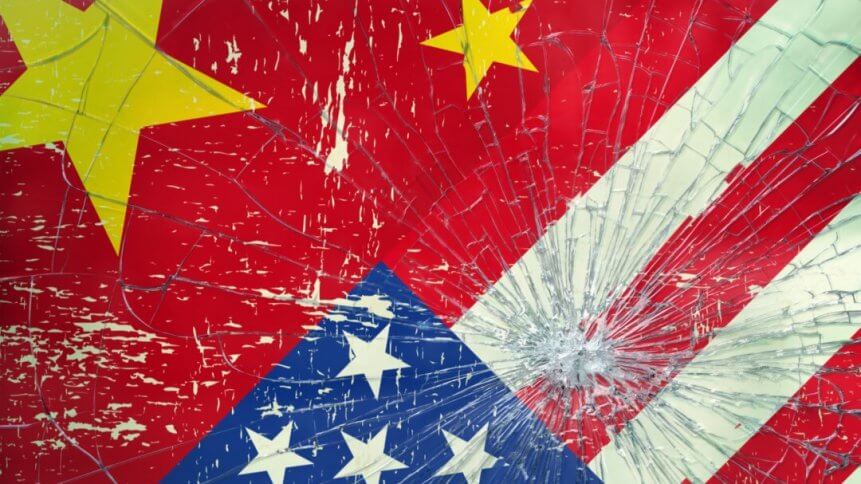Why the politics of the ‘splinternet’ are problematic for business

- The US Secretary of State has spoken of his desire for a “clean internet”, which involves removing “Chinese influence” from the US
- Increasingly, “when it comes to data handling, use, and movement, different countries are playing by different rules”
- Data management and international compliance are becoming all the more tricky
The internet is quite something, isn’t it? For every empowering post, there is an instance of “fake news”, for every open debate an inclination to stifle free speech or propagate ‘cancel culture’. The Universal Declaration of Human Rights put forth and celebrated “the right to seek, receive, and impart information and ideas through any media.” This right is becoming cloudy and at an alarming pace.
America’s seeking a “clean internet”
Last week, US Secretary of State Mike Pompeo outlined intentions to remove Chinese influence, and Chinese companies, from the internet in the US, claiming Chinese apps “threaten our privacy, proliferate viruses, and spread propaganda and disinformation.” For Pompeo, ridding the US of these platforms is a step towards a “clean” internet. The irony should not be overlooked that such a shift (should it move from posturing to policy) would lead to a US internet much more aligned with China’s own sectarian vision.
Many have lamented Pompeo’s call, pointing out that breaking up the global internet – and pushing forward with the so-called “splinternet” – will only serve to heighten geopolitical tensions and perpetuate divides. With China and Russia already operating stringent censorship protocols, what this potential shift from the US has a potentially big impact on the future of the internet.

Source: PNAS
Towards the Chinese model of censorship
The “Great Firewall of China” is a prime (and perhaps pre-eminent) example of grand-scale web monitoring/regulation. The US is positioning itself to follow China’s lead. Alan Woodward – a security expert at the University of Surrey – called Pompeo’s statements “shocking”, adding that we’re seeing an era of “Balkanisation of the internet”. But beyond hints of hypocrisy and the powers of protectionism, what are the implications on business?
The fact of the matter is the “splinternet and digital authoritarianism stretch far beyond the populations of these individual countries”.
In 2016, US trade officials accused China’s “Great Firewall” of creating “a trade barrier” (as concisely summarised by former Google CEO Eric Schmidt: “the US will dominate the western internet and China will dominate the internet for all of Asia”). With increasingly undemocratic digital boundaries, businesses are caught in the crossfire, striving to stay afloat amid the corruption of free markets and (again, ironically) rising cyber misinformation.

Source: AndersonLarkin.com
Transnational business in a divided world
Jeff Kim, writing on The Next Web, acknowledged that “the splinternet is already a formidable threat to businesses operating in multiple countries.” When it comes to data handling, use, and movement, different countries are playing by different rules. With Pompeo’s statement hinting at even more changes to the rulebook, the complex issue of data sovereignty requires an increasingly diligent approach to business data.
Businesses operating across borders could do worse than monitoring the situation pretty closely and considering which of their operations or applications are subject to restrictions — or these services may be cut off from valuable consumers and end-users in certain jurisdictions. As the internet fractures further, breaches and censorship circumvention could land businesses between 0.5 to 4 percent of revenue in fines (across EU’s GDPR, China’s Cybersecurity Law, and other penalty-enforced regulations).
Managing data in the splinternet era
GDPR and the “Great Firewall” represent just the tip of the data sovereignty iceberg. Further national governments (like Vietnam and Thailand) gain a lock on power by curbing content and establishing strict controls on the movement of data. Brazil now enforces their new General Data Privacy Law (LGPD), a law with super strict international data processing regulations. India, too, has recently announced formidable data sovereignty laws.
YOU MIGHT LIKE

How Trump’s WeChat ban affects businesses in the US
So there are internet splinters designed to protect citizens and other forms geared towards government controls. From a business perspective, the difference is not so stark. In response to both, enterprises must adapt data strategies to remain viable across operational borders. If you have an international data strategy, avoid operational blocks, and can move data in country-specific ways, you’re further down the road to business continuity in the splinternet era than those businesses that do not. Problem is, in such a shaky and fast-moving landscape, preparation can be stymied by shifting political intentions, and a one-time effort to comply won’t fly.
Lots of businesses and enterprises operating across borders tend to manage ‘big data’ (and international data) from centralized data lakes. However, with more data sovereignty regulations emerging, a more decentralized data approach is practically vital. It’s that or withdraw from geographic regions. Or pay fines. The latter two don’t seem that appealing.
The use of distributed data repositories – combined with intelligent data collection and rapidly adaptable provisioning – is essential to navigating the divided data future.
Discord invariably gives rise to calls for unity. Mark Zuckerberg has called for a ‘common global framework’ of internet rules. The worldwide web’s creator Tim Berners-Lee has developed a ‘Contract for the Web’ that sets forth an (apparently universal) set of internet principles and ethics. Meanwhile, policy-makers and data scientists continue to build proverbial digital walls. A nice touch of idealism from the pair of them, though.









